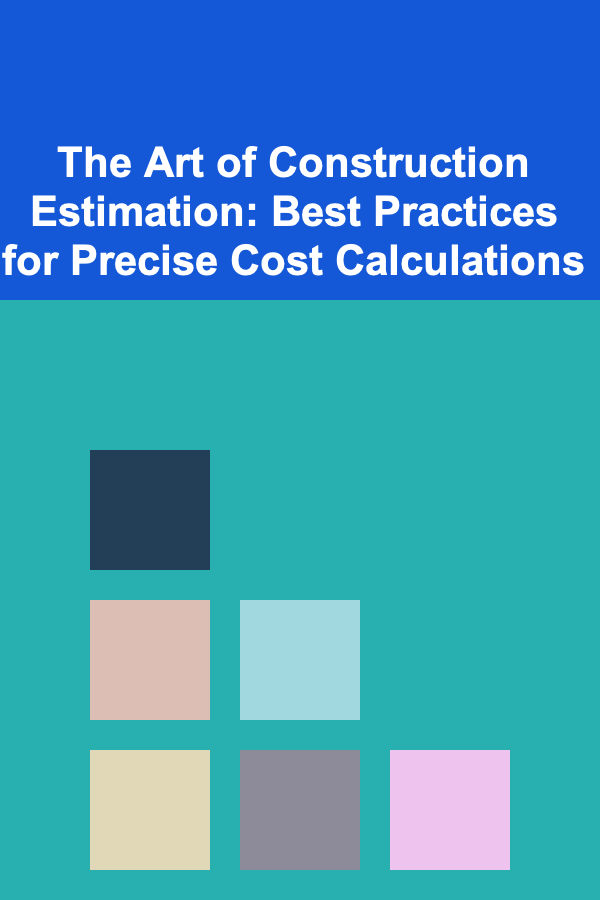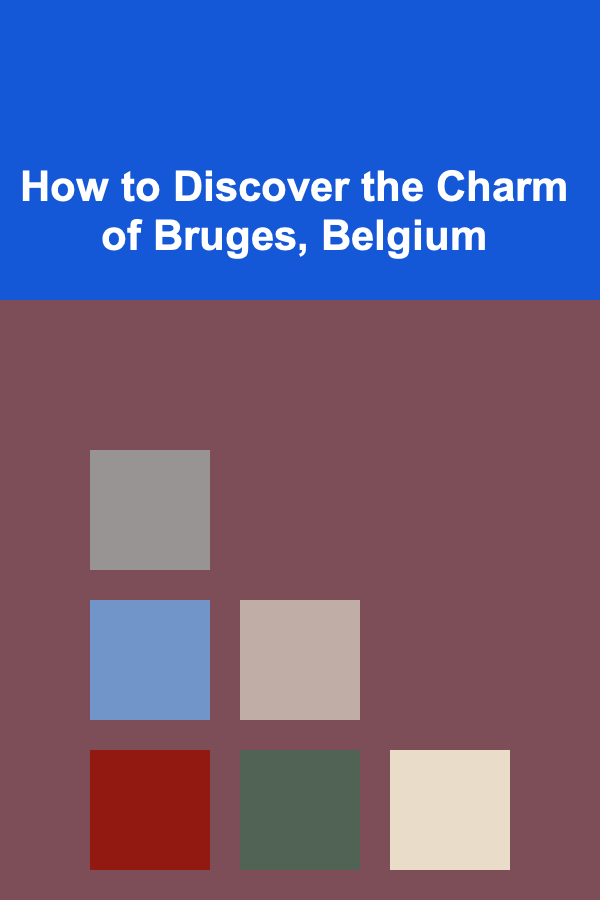
How to Perfect Your Interview Attire: A To-Do List for Professionalism
ebook include PDF & Audio bundle (Micro Guide)
$12.99$11.99
Limited Time Offer! Order within the next:
Not available at this time

When it comes to a job interview, first impressions matter. Your attire, body language, and presentation can have a significant impact on how you're perceived by potential employers. While your qualifications and experience will certainly speak volumes about your ability to perform the job, your appearance is equally important in establishing a professional image. A well-dressed candidate signals not only competence but also respect for the opportunity and the people you're meeting.
The task of perfecting your interview attire might seem overwhelming, especially if you are new to the professional world or making a transition into a new industry. However, with the right approach, you can put together a look that makes you feel confident, professional, and ready to take on any interview. This article will guide you through the key steps in perfecting your interview attire, helping you create a wardrobe that fits both the job you're applying for and the professional image you wish to convey.
1. Understand the Company's Culture and Dress Code
The first step in choosing your interview attire is to understand the company's culture and dress code. Different industries and companies have varying expectations when it comes to professional dress. For example, a creative agency may encourage business casual or even casual attire, while a law firm or corporate office may require formal business attire.
Researching the Company
To avoid any wardrobe faux pas, begin by researching the company's dress code before your interview. Check the company's website and social media pages to get a sense of how employees dress. If the company has a public-facing presence, such as events, conferences, or press photos, look for pictures of employees in professional settings. LinkedIn profiles can also provide valuable insight into the typical dress style of staff members.
If you're still unsure about the level of formality, it's better to slightly overdress than underdress. You can always tone down your outfit if you feel the company is more casual than expected.
The Impact of Dress Codes
Dressing appropriately for the job interview can have a direct impact on how seriously you're taken as a candidate. Wearing clothes that align with the company culture demonstrates that you've done your homework and understand their expectations. It shows that you are adaptable and capable of fitting in with their team.
2. Choose Clothing that Fits Well
The most important aspect of interview attire is ensuring that your clothing fits properly. Ill-fitting clothes can make you appear unkempt and unprofessional, even if they are expensive or stylish. The goal is to look neat, clean, and put-together, so make sure your attire fits comfortably and enhances your confidence.
Tailoring Your Clothes
For both men and women, tailoring is key to achieving a polished look. Off-the-rack clothing may not fit perfectly, and that's okay. Consider taking your clothes to a tailor to ensure that they fit you perfectly. A well-tailored outfit---whether a suit, blouse, or trousers---will highlight your frame and convey a sense of attention to detail and professionalism.
For example, if you're wearing a suit, make sure the jacket fits snugly around the shoulders and chest, and the sleeves are the right length (typically just above the wrist). Similarly, for trousers, the hem should break neatly at the top of your shoes, and skirts should fall just above or below the knee.
Comfort Matters
While fitting well is crucial, comfort is also important. If your clothes are too tight, too loose, or uncomfortable in any way, it will likely show in your body language. You want to feel at ease during your interview, as comfort will allow you to focus on your answers instead of adjusting your clothing. Choose fabrics and cuts that allow you to move and breathe naturally.
3. Choose the Right Colors
The colors you choose for your interview attire can send powerful messages about your personality and approach to the job. Different colors evoke different emotions, so it's essential to select hues that align with the impression you want to create.
Classic Colors for Professionalism
When in doubt, stick with neutral and classic colors for your interview outfit. These colors tend to convey professionalism, competence, and trustworthiness. Some of the most commonly recommended interview colors include:
- Navy Blue: Associated with confidence and stability, navy blue is often a go-to color for business suits. It conveys trustworthiness and is appropriate for most industries.
- Black: Black is a classic and powerful color that signifies authority and sophistication. It works well for more formal interviews, such as those in corporate or legal settings.
- Gray: Gray is another neutral color that signals professionalism and balance. It's perfect for interviews where you want to appear approachable, calm, and competent.
- White: A crisp, white shirt is a staple in professional attire. It symbolizes cleanliness and simplicity and works well in combination with other colors.
Avoid Overly Bright Colors
While bold colors like red, orange, and yellow can make a statement, they can also be distracting. If you choose to wear a brighter color, consider using it sparingly---perhaps as an accent color in a tie, scarf, or blouse. Remember, you want the focus to be on your qualifications and personality, not your outfit.
4. Pay Attention to Grooming and Personal Hygiene
Your grooming and personal hygiene are just as important as your clothing. Cleanliness and attention to detail demonstrate that you are prepared and take the interview seriously. If your grooming is neglected, it may undermine the professionalism of your attire, no matter how stylish it is.
Hair
Make sure your hair is clean, neat, and well-groomed. For men, this might mean trimming facial hair and ensuring a polished hairstyle. For women, consider keeping hair out of your face, either in a ponytail, bun, or simple style that doesn't require constant adjustments during the interview. Avoid overly elaborate or distracting hairstyles that might take attention away from your conversation.
Nails
Your nails should be clean and trimmed. If you wear nail polish, choose neutral or soft colors that complement your outfit. Avoid bright or neon colors, as they may appear too flashy for a professional setting.
Skin and Face
Make sure your face is clean and free of any excess makeup or products. If you wear makeup, aim for a natural, fresh look. Similarly, ensure that your skin is clean and free from blemishes, as this can contribute to a well-groomed and polished appearance.
Fragrance
Strong perfumes or colognes can be distracting in an interview, so it's best to keep fragrance to a minimum. A subtle scent is fine, but make sure it doesn't overpower your presence.
5. Keep Accessories to a Minimum
Accessories can enhance your overall look, but they should not dominate your outfit or distract from the conversation. The goal is to complement your attire, not overshadow it. Choose simple, tasteful accessories that add elegance without drawing too much attention.
Watches, Ties, and Jewelry
- Watches: A classic wristwatch is a sophisticated accessory that demonstrates punctuality and attention to detail. Avoid overly flashy or oversized watches, as they can be distracting.
- Ties: For men, a simple, solid-colored tie or a subtle pattern works best. Avoid loud, bold prints or novelty ties that might come across as unprofessional.
- Jewelry: Women should opt for modest jewelry---think small earrings, simple necklaces, or a classic bracelet. Avoid large or jangly pieces that could be distracting.
6. Wear Proper Footwear
Your choice of footwear plays a crucial role in completing your professional look. Choose shoes that are clean, polished, and appropriate for the level of formality of the interview.
Footwear for Men
For men, classic leather shoes such as Oxfords, loafers, or brogues are always appropriate for interviews. Stick with neutral colors like black or brown, and make sure the shoes are polished and in good condition. Avoid sneakers, sandals, or shoes that are worn out or scuffed.
Footwear for Women
Women should opt for closed-toe shoes that are comfortable and professional. Classic pumps or flats in neutral colors like black, beige, or navy are perfect for interviews. Avoid shoes that are too high or uncomfortable, as you don't want to be focused on adjusting your shoes during the interview.
7. Prepare for the Unexpected
While you can plan your outfit meticulously, it's important to be prepared for any unexpected circumstances on the day of your interview. Plan ahead to ensure that everything goes smoothly.
Weather Considerations
Check the weather forecast the day before your interview. If it's rainy, bring a professional umbrella and wear waterproof shoes. If it's cold, layer your clothing with a stylish coat or jacket that complements your outfit.
Additional Clothing Items
If you're unsure about your outfit or the formality of the company, bring along an extra layer, such as a blazer, scarf, or cardigan, that you can add or remove as needed. This way, you can adjust if necessary without looking out of place.
8. Final Check Before You Leave
Before you walk out the door, give yourself a final check. Look at yourself in the mirror and assess whether everything is in place. Check for wrinkles, stains, or any signs that you may need to adjust your clothes. A final once-over will ensure that you're fully prepared to make the best possible first impression.
In conclusion, perfecting your interview attire is not just about dressing to impress but about feeling confident and prepared. When you align your clothing choices with the company culture, choose pieces that fit well and reflect professionalism, and pay attention to grooming, accessories, and details, you'll set yourself up for success. By following this guide and taking time to plan your outfit, you'll be ready to make a lasting and positive impression during your interview.

How to Keep Your Home's Plumbing in Top Condition
Read More
How to Use Spreadsheets to Manage Your Finances
Read More
The Art of Construction Estimation: Best Practices for Precise Cost Calculations
Read More
How To Promote Curiosity and Exploration
Read More
How to Discover the Charm of Bruges, Belgium
Read More
10 Tips for Managing Multiple Student Loan Repayment Plans
Read MoreOther Products

How to Keep Your Home's Plumbing in Top Condition
Read More
How to Use Spreadsheets to Manage Your Finances
Read More
The Art of Construction Estimation: Best Practices for Precise Cost Calculations
Read More
How To Promote Curiosity and Exploration
Read More
How to Discover the Charm of Bruges, Belgium
Read More